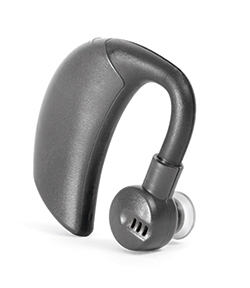Uncovering Dementia
A new case of dementia is diagnosed every three seconds, according to the World Health Organization. Chances are you know someone whose life is touched by dementia, which is overwhelming physically, psychologically and economically for those who have it and also for their families and caregivers.
For decades, Purdue University researchers within the College of Health and Human Sciences have pursued improved care for those with dementia and worked to develop methods for earlier detection and potential treatments.
Learn more in the Life360 magazine: HHS Researchers Strive to Improve Care, Develop Treatments for Dementia
Center for Research on Brain, Behavior, and NeuroRehabilitation (CEREBBRAL)
CEREBBRAL researchers in the College of Health and Human Sciences
are determined to improve the quality of life for all people later in life.
The center has four main objectives toward that goal:
- To better understand and characterize aging and neurological diseases — mechanisms affecting brain function, physiology, communication and mobility.
- To develop optimal interventions to improve function and independence.
- To assess the impact of new interventions and devices and to make them available to the public.
- To study cognition and behavior in complex biological systems.
A prosthetic speech device startup is born
Jessica Huber, a CEREBBRAL co-director, got hooked on helping people with Parkinson’s disease during her first research grant years ago.
“I had this couple married for 50 years. He had Parkinson’s disease and she had hearing loss,” says Huber, who says one symptom of Parkinson’s is the loss of volume when speaking. “The husband couldn’t shout, and his wife couldn’t hear him. Now they couldn’t talk to each other.”

Huber, a professor of speech, language, and hearing sciences, also was motivated to help people with Parkinson’s disease whose illness was stifling their personalities. “Their personalities get buried in their disease. They might be big joke-tellers, and I’ll see in their faces that they’re joking with me because I’m used to communicating with people who have Parkinson’s disease,” she says. “But to someone who doesn’t have experience with how Parkinson’s disease affects communication, that personality gets buried.
“This was heartbreaking to me. I felt that the way I could make a big impact with my career was to pay attention to this and really take the time to figure out what works best and for whom.”
Huber’s efforts have paid off with a device she patented called SpeechVive. Available at speechvive.com, the device fits into the ear and plays a low-level sound like white noise. The noise triggers a reflex that causes the patient to speak louder and more clearly.
Discover more from News | College of Health and Human Sciences
Subscribe to get the latest posts sent to your email.